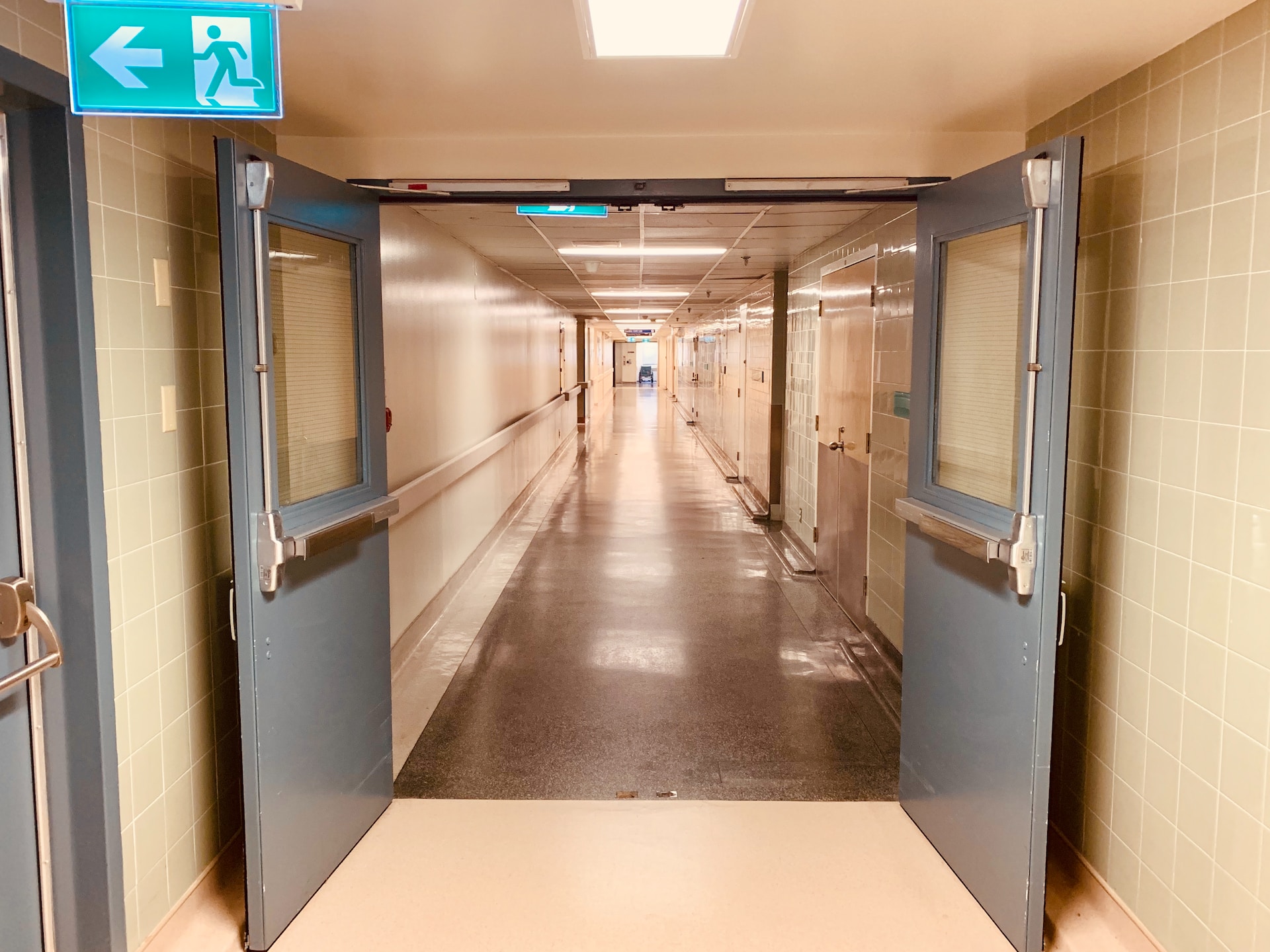Medical malpractice is a serious issue that can have devastating consequences for patients. It occurs when a healthcare provider fails to meet the expected standard of care, resulting in harm to the patient. The impact of medical malpractice can be physical, emotional, and financial, causing patients and their families to suffer in numerous ways.
In cases of medical malpractice, patients have legal options available to them to seek justice and compensation for their injuries. These options may include filing a lawsuit against the responsible parties, negotiating a settlement, or pursuing alternative dispute resolution methods.
It is essential for patients to understand their legal rights and options in cases of medical malpractice. By taking appropriate legal action, patients can hold healthcare providers accountable for their actions and obtain the compensation they need to recover from their injuries and move forward with their lives. In the following sections, we will explore hospital liability, the elements of medical malpractice, and the process of suing a hospital for medical malpractice.
Table of Contents
- Understanding Hospital Liability
- Elements of Medical Malpractice
- Suing a Hospital for Medical Malpractice
- Final thoughts
Understanding Hospital Liability
Hospitals can be held liable for medical malpractice under certain circumstances. Hospital liability can be determined by examining the relationship between the hospital and the healthcare provider involved in the malpractice. Depending on the nature of this relationship, hospitals can be held liable under two types of liability: vicarious liability and direct liability.
Vicarious liability refers to a situation where a hospital is held responsible for the actions of its employees, such as doctors, nurses, and other healthcare providers. In cases where a healthcare provider commits medical malpractice while acting within the scope of their employment, the hospital can be held vicariously liable for their actions.
Direct liability, on the other hand, applies to situations where the hospital itself is responsible for the malpractice. For instance, if the hospital fails to maintain adequate staffing levels, or fails to provide adequate training or supervision to its employees, resulting in medical malpractice, the hospital can be held directly liable.
For a hospital to be held liable for medical malpractice, certain factors must be present. Firstly, the healthcare provider must have been an employee or agent of the hospital at the time of the malpractice. Secondly, the healthcare provider must have been acting within the scope of their employment or agency relationship when the malpractice occurred. Finally, the malpractice must have resulted in harm to the patient.
Hospitals can be held liable for medical malpractice in certain circumstances. Understanding hospital liability and the factors that must be present to hold them responsible can be crucial for patients seeking compensation for their injuries.
Elements of Medical Malpractice
Medical malpractice is a legal concept that involves the failure of a healthcare provider to meet the expected standard of care, resulting in harm to the patient. To prove medical malpractice, four key elements must be present: duty of care, breach of duty, causation, and damages.
Duty of care refers to the obligation of healthcare providers to provide care to their patients that meets the accepted standard of care. This duty is typically established when the healthcare provider enters into a professional relationship with the patient.
Breach of duty occurs when a healthcare provider fails to provide care that meets the expected standard of care. This breach can occur in many different ways, such as failing to diagnose a condition, making a mistake during surgery, or prescribing the wrong medication.
Causation refers to the link between the breach of duty and the harm suffered by the patient. In other words, it must be shown that the breach of duty was the direct cause of the harm suffered by the patient.
Finally, damages refer to the harm suffered by the patient as a result of the breach of duty. This can include physical injuries, emotional distress, and financial losses.
In cases of medical malpractice, these four elements must be proven to establish liability. For example, a patient may argue that a healthcare provider breached their duty of care by failing to diagnose a condition, causing the patient to suffer harm. The patient would then need to prove causation by showing that the healthcare provider’s failure to diagnose the condition was the direct cause of their harm. Finally, the patient would need to prove damages by demonstrating the physical, emotional, and financial harm they suffered as a result of the healthcare provider’s actions.
Understanding the four elements of medical malpractice is crucial for patients seeking compensation for harm suffered due to medical negligence. By demonstrating duty of care, breach of duty, causation, and damages, patients can establish liability and obtain the compensation they need to recover from their injuries.
Suing a Hospital for Medical Malpractice
Suing a hospital for medical malpractice can be a complex and challenging process. Patients who have been injured due to medical negligence must take certain steps to pursue legal action against the hospital responsible for their injuries.
The first step in suing a hospital for medical malpractice is to gather evidence. This can include medical records, witness statements, and expert opinions. It is important to collect as much evidence as possible to build a strong case against the hospital.
The next step is to select an attorney who specializes in medical malpractice cases. An experienced attorney can provide valuable guidance and support throughout the legal process, including negotiating with the hospital, filing a lawsuit, and representing the patient in court.
Once an attorney has been selected, the patient and their legal team will work to file a lawsuit against the hospital. This involves drafting and filing a complaint with the court, which outlines the allegations against the hospital and the damages being sought by the patient.
In cases of medical malpractice, patients may be able to recover a range of damages, including compensation for medical expenses, lost income, pain and suffering, and other losses caused by the malpractice. The amount of damages that can be recovered will depend on the severity of the patient’s injuries, the extent of their financial losses, and other factors.
Suing a hospital for medical malpractice can be a difficult and time-consuming process. Patients who have been injured due to medical negligence should work with experienced attorneys to gather evidence, file a lawsuit, and seek compensation for their injuries. By taking appropriate legal action, patients can hold hospitals accountable for their actions and obtain the compensation they need to move forward with their lives.
Final thoughts
Understanding hospital liability and the legal options available to patients who have been the victims of medical malpractice is crucial. Hospitals can be held liable for medical malpractice under certain circumstances, and patients must prove duty of care, breach of duty, causation, and damages to establish liability.
Patients who have been injured due to medical negligence should consider taking legal action against the hospital responsible for their injuries. This involves gathering evidence, selecting an experienced attorney, and filing a lawsuit. Patients may be able to recover a range of damages, including compensation for medical expenses, lost income, pain and suffering, and other losses caused by the malpractice.
It is important to note that pursuing legal action can be a difficult and time-consuming process. However, patients who have suffered harm due to medical negligence should not hesitate to seek legal help to hold hospitals accountable for their actions.
In conclusion, patients have the right to receive safe and effective medical care, and hospitals have a responsibility to provide this care. By understanding hospital liability and the legal options available to them, patients can protect their rights and obtain the compensation they need to move forward after a medical malpractice injury.

Meds is an attorney currently residing on the East Coast, where he practices law. While his primary focus lies in criminal law, he also has experience in family and personal injury law. His legal background enables him to navigate a variety of legal challenges and provide comprehensive assistance to his clients.





